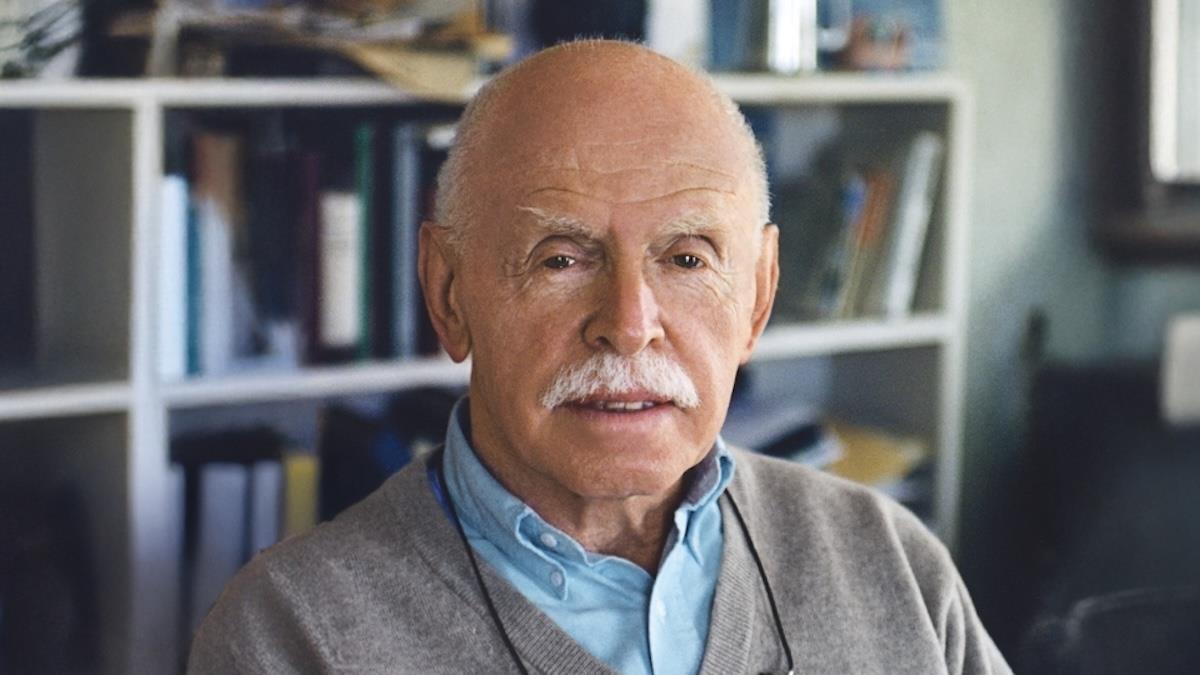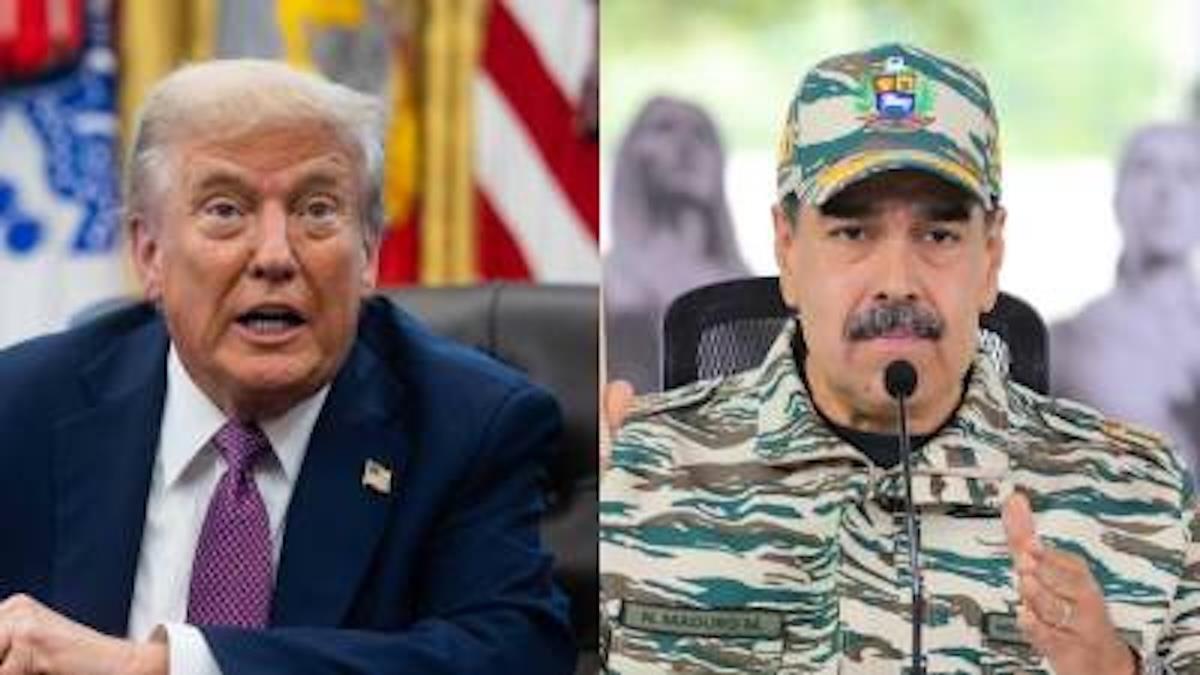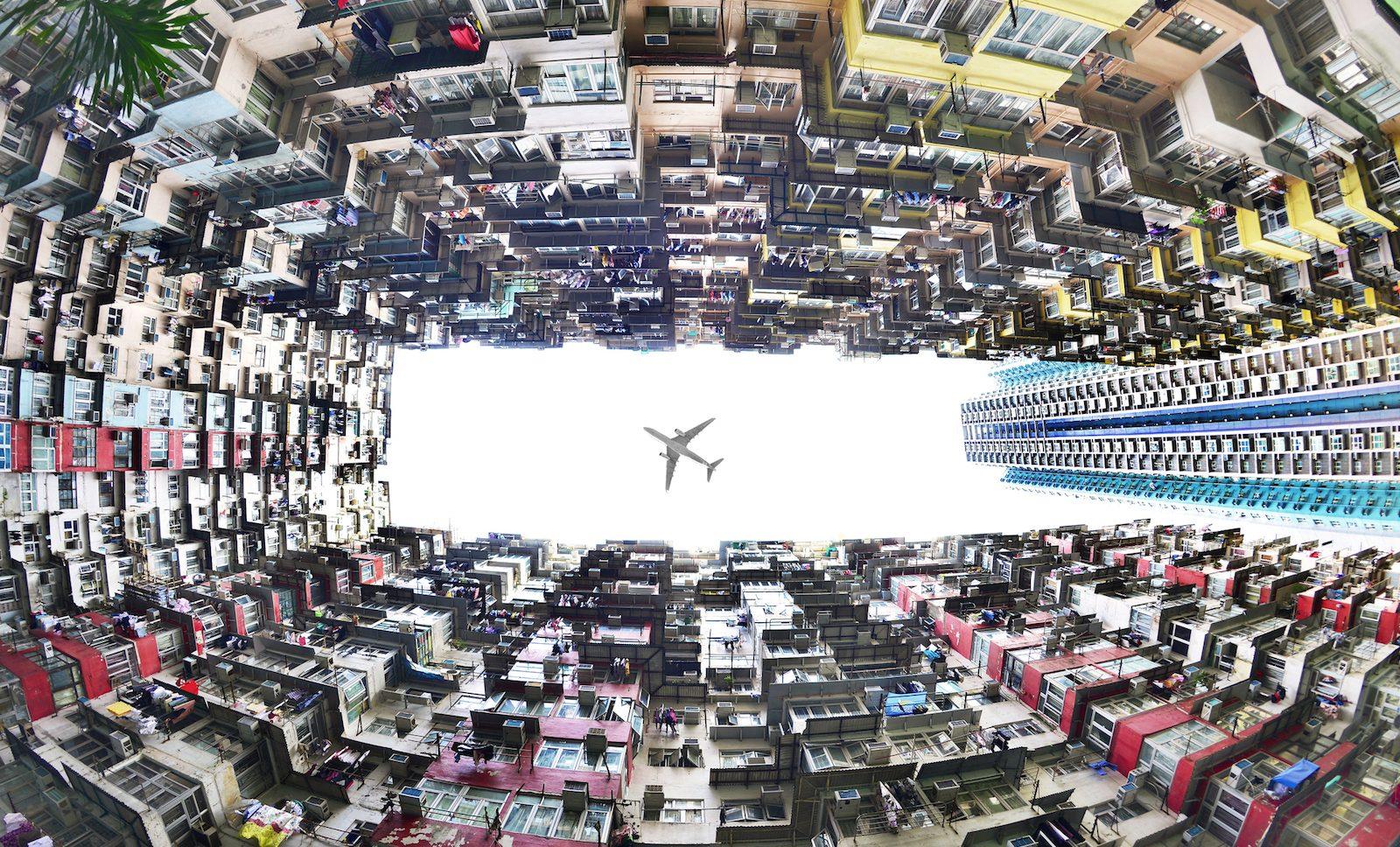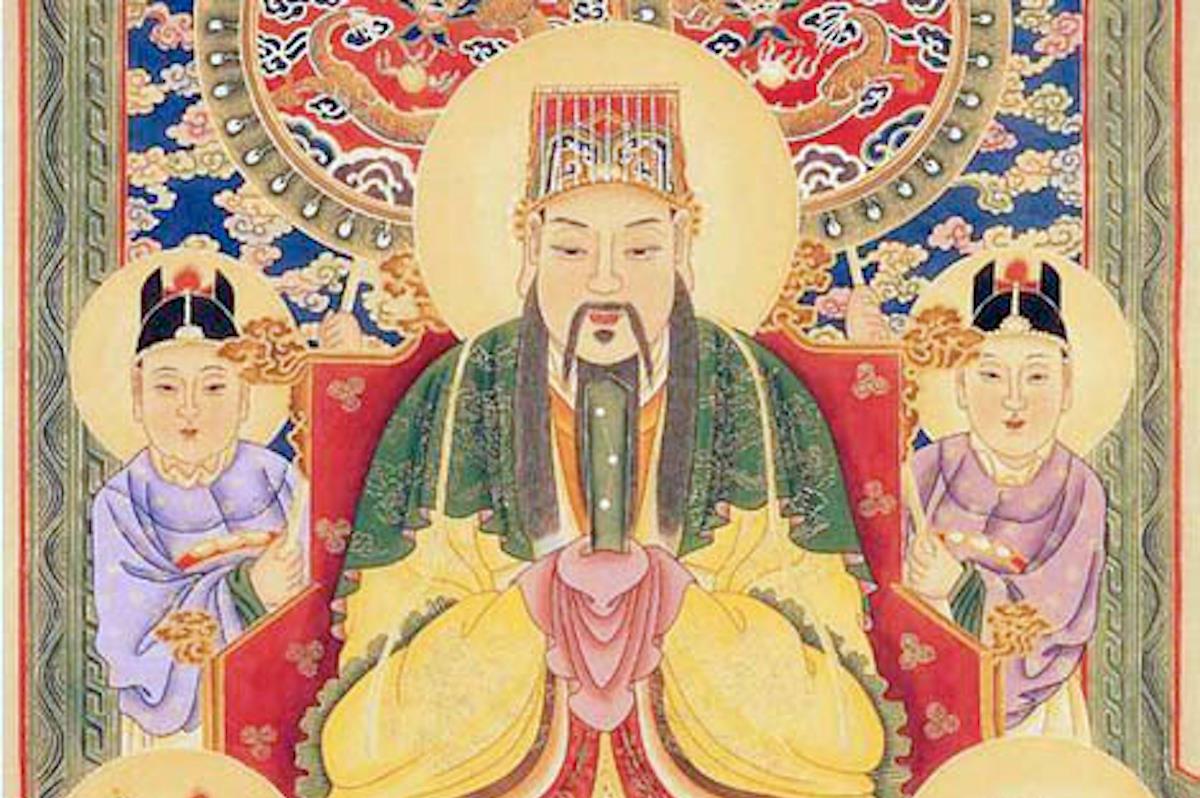
Empires Strike Back
In 1918, three empires – the Holy Roman, Russian and Ottoman, spanning centuries of Mediterranean history and all claiming the legacy of the ancient Roman Empire – came to their ends.
They all asserted a special link with the divine. In Russia and Turkey, the czar and the sultan were also the heads of their faiths; in Austria, the emperor had a special tie with the Pope in Rome.
With their fall, Mediterranean politics definitively shattered an old, worn-out link with God, a system in which political power and the clergy were two distinct entities but had found convergence in the imperial person. That strong link had marked Mediterranean history for centuries. In fact, the long process from republic to empire started in Rome over 2,000 years ago.
The Western imperial riseThe drive for empire started with the end of the Punic Wars (264-146 BCE). Then the Roman republic was without peer challengers in the region, but its territory was far too extensive and it needed a professional standing army. Marius (157-86 BCE) was the first to push for it. However, a professional army carried the seed of the republic's destruction.
Professional soldiers became loyal to their generals, not to the Roman res publica. This, in time, ushered in mighty generals who came to be the supreme military commanders of the Roman world – emperors.
Following the defeat of the Carthaginians, the vast and diverse Roman organization required long-term planning, a complex organizational structure and extensive standing armies that could be easily deployed. This implied the development of complex logistics, armories, and food supplies. They needed plans whose success or failure could be judged over the years. This, in turn, demanded trust and faith in a long-term leader – hence the emperor.
It was a massive philosophical move from the organization of a rowing boat or the legion, where each man was responsible for his oar or his shield within a unit of equals (see here ). Yet the legion continued to exist; in fact, it remained the core of Roman victories. Boats in the treacherous Mediterranean Sea, with sudden changes of winds or a lack of wind altogether, were still reliant on coordinated rowing. Here, mistakes continued to be immediately visible and had to be immediately corrected.
These opposed elements may have also contributed to historical sedimentation in the imperial transformation of Rome. It promoted a new emperor but kept a separation of powers, with the old republican trappings and a religious entity distinct from the political one – a fairly separate religious entity, well fitted to a structure of split yet equal and balanced duties and rights. In a phalanx or in a boat, all are all equal but each has distinct requirements to fulfill.
Trust in long-term imperial planning transcended the single emperor; it was generational or multi-generational. Its outcome could only be seen in the afterlife, whether one was in hell or paradise.
Yet daily mistakes and surprises had to be addressed and corrected immediately. There was a double time: one of daily“chaos” to be managed daily (with the ancient republican trappings) and the imperial time – eternal, like the gods, and to be judged not in this life.
The distinction might have been weaker in Byzantium, Moscow or Istanbul. Still, the Czar or the Sultan had to confront the periodic challenges of a clergy that sometimes called out actual or alleged imperial errors.
The clergy could have been used to run the empire. Still, bureaucratic structures were never as developed as in China, and the loyalty of the clergy to the emperor or the religious faith was totally overlapping. Physics and metaphysics were distinct realms in the Abrahamitic religions that conquered the world. By principle, they didn't coincide. Thus, the emperor's actions could become questionable and hence challenged by the clergy.
This was the backbone of Mediterranean empires that lasted until 1918.
ChinaThe picture in China was very different. The emperor was the son of Heaven in a public religion in which public peace and stability were practical proof of heavenly favor. One didn't have to die to see if he was in hell or paradise, as was the case with Christians or Muslims. The daily order and the food abundance in the markets were clear evidence of the emperor's good work. There was no official religion outside this, and thus there were no real clergy. Instead, there were bureaucrats at the service of the state religion and the emperor.
It was a practical time, between daily chaos and eternity. The rise or fall of a dynasty proved practically that the empire was right or wrong. Daily troubles could be fixed or not, provided they didn't exceed a certain threshold of general instability. Then they had to be crushed lest the empire's stability be under threat.
Any dynasty also had a specific ideological/religious drive that cast a main shape on its rule. It was their own particular philosophical content – unlike in the West, where all sovereigns drew from Christianity or Islam albeit with different shades. Again, it was a time frame shorter than God's eternity and longer than the daily mess.
Rebellions broke out when people felt stability and well-being were not guaranteed – when there had been a major famine or flood that the state hadn't managed to cope with. Rebellions started when the emperor and his officials/clergy didn't provide stability and food. People would then feel they could not rely on arrangements from above but had to take things into their own hands.
Ancient China, before the Qin unification, had a specific term for it, dang 黨, (especially as explained in Mozi. People are encouraged to conform above shangtong 尚同and not clique below xiadang 下黨) which meant something like plotting in the local villages without consulting superiors. This plotting led to banditry. Farmers, impoverished and deprived of their land, took to the forest and mountains, robbing people. This led to growing penury – a vicious circle that imperial forces had to quell; if they failed, it ultimately ended with toppling the empire. When banditry grew in scale, it often took on religious/ideological colors.
Liu Bang, founder of the Han dynasty in the second century BCE, came from this tradition. He was a petty criminal who joined a group of escaping criminals. Zhu Yuanzhang, founder of the Ming, was a penniless Buddhist monk who joined the Red Turbans in the 14th century CE.
The Turbans were yellow when they toppled the Han dynasty in the 3rd century CE, although they failed to establish a new dynasty. In the mid-19th century the rebels, known as the Taiping, were pseudo-Christian when they almost overthrew the Qing dynasty. That is, religion and politics were one, both in the rule and the challenge of the empire. The proof of their faith was in the pudding of their revolution. The revolution succeeded because its ideology/religion was effective. If it failed, the religion/ideology could well disappear – very much unlike the millennial Mediterranean religions.
Below the dynastic faith, there has been a lasting impact of Buddhism, mixed with Taoist beliefs. But they were private, personal events. They didn't require weekly assemblies (Sundays, Saturdays, or Fridays) where the preacher would collectively direct both ordinary and powerful people in one direction or another, as seen in the Abrahamic faiths. Faith was not a social affair. Social faith was only about the state.
Mediterranean incursion into AsiaIn the 7th century AD, the expansion of Islam weakened the Roman Empire. Still, Constantinople resisted the onslaught. On the other hand, the Arabs broke the Persian Empire, which had for centuries blocked direct contacts between the Mediterranean and the Indian world. The feat had been achieved only once before by Alexander the Great. The realms of the Muslim world subsequently failed to keep a unified faith and unitary state rule.
Still, Islam continued to spread and find converts all the way to Indonesia, the Philippines, and southern China. It created the first trade/religious network spanning from East Asia to the Mediterranean shores.
The eastern expansion of Muslim culture after the fall and conquest of the Persian empire reached India, where Greek culture, which undergirded Muslim philosophy, had already had an impact since the time of Alexander. That is, Western culture wasn't wholly new. Besides, Islam also originated from the cradles of ancient Greek philosophy, Christianity and the Jewish faith, which also influenced northern European culture.
Latest stories
Lawyer and China hand Jerome A. Cohen: a remembrance

Chances of US war vs Venezuela rising despite significant risks

TikTok deal doesn't address manipulation risk, only who profits
Christianity attempted to break the Islamic hold on contacts with Asia, possibly by exploiting the large continuum created by the Mongol conquests in the 13th century. It dreamed of a Christian king of the east, the mythical Prester John, but it never really pierced the Islamic monopoly. The European traders who thrived in the Mediterranean did so by compromising and dealing with Islamic and Jewish traders.
Ottoman wealth and power originated from Central Asia and the Islamic network, an empire of trade that stretched across Asia, including China. Islam had established a stable connection between the Far East and the Mediterranean basin. The 15th-century voyages of Ming admiral Zheng He were possibly a Chinese response to this Muslim power. Zheng was a Muslim loyal to the emperor of China, not to other sultans. Zheng proved a significant religious point: one could be personally Muslim, as different Chinese were personally Buddhist, but it was a purely personal belief, not social, and it didn't interfere with the“social faith” in the sacred imperial order of the son of Heaven.
When the Spanish, Portuguese, and Dutch (all initially loyal to the Holy Emperor of the Habsburg dynasty) first arrived in East Asia in the 16th century, they had to fight and expel Muslim traders. The European merchants brought to Asia an unparalleled advantage compared with their Muslim competitors – the goods and silver of the Americas, which they had monopolized.
Over the following centuries, the Muslim trade and political empire came to a slow end. It was brought about by military defeats (the Spanish stopped the Muslim advance in the Mediterranean with Lepanto in 1571, and in the east, they conquered Manila) and economic advantages (the westerners had more and better goods to trade thanks to their control of the Americas). Still, it was not the end of their religious footprint on the Asian continent.
To try to win over these new areas, the Catholic Church, then far more organized than its Protestant competitors, sent missionaries to the east. They came back with a trove of untapped culture from China that impacted the Western world in the 17th and 18th centuries. It contributed to the labor of modernity.
This culture contributed to the transformation of Europe and the emergence of modern society.
There were three sets of contributions that gave rise to modernity in the West:
At the time when Western Christianity was winning, it broke down. The Protestant Reformation, which occurred in the 16th and 17th centuries CE, significantly disrupted the pact between the Pope and the Holy Emperor, which had been the gravitational pull of Europe since Charlemagne.
The long reign of emperors, spanning some 18 centuries, was now waning. The Dutch claimed independence from the Habsburgs and established a Republic.
In the 17th century, the English beheaded their king and gave power to Parliament before remitting it to a dictator, Oliver Cromwell. When the monarchy was re-established, the king was provided by the Dutch Republic.
The century following American independence (proclaimed in 1776) was marked by the country's efforts to play the French against the English and establish its republic. In France, in 1789, a republic beheaded the king but then proclaimed Napoleon a dictator and made him an emperor, whom the Pope crowned, like Charlemagne a millennium earlier. The reign of Emperor Napoleon was short-lived, and the movement against imperial power that accompanied the wealth and power created by modernity and capitalism carried on in the 19th century, engulfing the whole world in its wake.
Dictatorships, from Cromwell to Napoleon, seemed like nostalgia, a muscle memory of the king's old hieratic power. In the 19th century, the old European order crumbled, culminating in 1918 with the fall of the three ancient empires: the Holy Roman, the Russian and the Ottoman. The rest of the world's empires fell to their knees then or shortly thereafter. Empires were no more; democracy, whether liberal or popular, was the keyword.
It was the end of a world. However, the collapse occurred with the sudden replacement by an emerging power, the United States, which was also a Roman offspring. It was the death of the West as it had been known and the birth of the new one. It happened over two centuries, starting with the French Revolution, which spread the revolutionary idea that societies could be reshaped and re-engineered. Later, in the 20th century, this idea of rebuilding societies and states continued.
With the French Revolution, Leninism, some democratic Western movements and fascism came the idea of a society that can and should be re-engineered.
In Europe, the Soviet revolution aimed to boost social justice over personal riches, and, consequently, the happiness of the people. The liberals, conversely, primarily aimed at increasing wealth growth, which in the end boosted the wealth and thus the power of their nations.
The social project began with the people, not the state, but ultimately, the state would be more prosperous and more powerful, with happy and driven people.
The French and Soviet revolutions also applied a different sense of geography. Every person in the world (not just within one state) should have the same rights and enjoy the same opportunities, governed by the same rules that would collectively govern the whole world. The abstraction of a unified world, not a singular state, was the general political horizon.
China, againCertainly the idea of engineering the state and society was not unknown in traditional China. The whole ancient pre-Qin unification debate (3rd century BCE) was about engineering state structures. The goal was to create the most efficient state and social structure to boost production, thereby increasing the population and equipment necessary for the army to win wars and expand territory and population. The goal was the power and survival of one's state against competing states.
China in the 20th century, whether consciously or unconsciously, may have recognized elements of its own cultural DNA when it came to believe in the bankruptcy of its cultural order and introduced Western concepts wholesale. The Communist Party introduced and spread the idea of equality among people, a concept previously unheard of in a highly hierarchical society. It brought the concept of democracy as the rule of the people. Then, with Deng's reform, the idea of abstract market rules was also introduced.
In a nutshell, the massive transformation brought about by the party is threefold:
The party utilizes the concept of equality, which did not previously exist, and continues to face challenges in gaining cultural acceptance within a hierarchical mindset. There is no emperor; some veteran comrades select leaders and decide policies. Geographically, China is no longer isolated; it maintains trade and diplomatic relations with many countries. Because they control Tibet and Xinjiang, formerly buffer areas, they have no buffer state; moreover, their economy depends on international trade, unlike at any other time in Chinese history. Therefore, the party needs to follow global developments and cannot simply concentrate on its own territory as it did in the imperial past.How to reconcile these elements? There is still the tradition of isolation, a semi-conscious belief in an emperor, a sense of hierarchy; how can these be reconciled?
The Communist Party has already altered the fundamental concepts of Ancient China by uniting formerly separated elements: ownership (which was under the emperor's control) and management, which was in the hands of ministers appointed by the emperor. Now, without an emperor, interpreter of the will of Heaven, or without a people that can elect its leaders according to its wishes, everything is confused. Who knows what the right direction is for the country and its people?
At the same time, there is a growing impatience in China and around the world with the liberal order and the division of power that have characterized the cultural debate of the past three centuries.
Social media have enabled people's general wishes (lumping together all the singular postings) to connect directly with top leaders, eliminating the need for physical contact and personal debates. Moreover, by providing a platform for everyone to reflect on their own postings, social media have permitted each individual to develop a sense of self-satisfaction and egotism, even though those postings become just a tiny part of a broader statistical analysis.
Old rights to privacy and freedom are de facto restricted by vast mechanisms that generate trends driven by the unfettered surge of personal liberty and private exposure. Then, the needs of large companies feed on personal delusions of freedom. Only“outdated” laws on privacy and liberty stand between the mass-control led by companies and genuine personal freedoms. The industrial and developmental trend is toward mass control.
In this situation, a country like China, already well-structured and unshackled by the ideas of the old necessity of privacy and personal freedom, and driven by the accepted notion of public need, could be ahead compared with a country such as the US, still fettered by democratic trappings.
... and empires' rebirthUnderstandably, since empires fell only a little over a century ago, their memory is still with us, fostering a nostalgia for the good old days. Moreover, the new liberal order is proving tiring, largely incomprehensible and confusing to most people called upon to take on their own responsibilities. Many have grown impatient with the complexities of the liberal order in the new West (see here ), forgetting that the Western transformation into modernity has tripled average human life expectancy, increased the human population tenfold in about a century and improved the quality of life to an unprecedented level.
This was due to the complex and contradictory nature of the Western capitalist revolution. Still, it is so confusing that many would prefer to trust a messianic leader.
However, here's a twist and a question mark. Ancient empires included a religious element to justify the rule of one over millions. Consciously and unconsciously, people believed the gods had touched the emperor, enabling him to foresee events and steer the nation's future. The Chinese emperor was the son of Heaven. The sultan was also the commander of the faithful, as was the Russian czar. The emperors and kings of Europe needed the Pope's blessings. Leadership was viewed as a divine gift, akin to the gift of a prophet.
Today, some leaders seem to seek a similar sense of divine authority. Russian President Vladimir Putin turns to the Orthodox Church. Former US President Donald Trump had a group of evangelicals bless him at the White House. North Korea's leader, Kim Jong-un, has inscribed his divine right to rule in the constitution, and propaganda venerates his father and grandfather as if they never died – in a neo-shamanistic cult.
This leaves Beijing as the major entity rejecting a special relationship with the divine. In theory, it should either renounce the communist legacy and return to the times of the son of Heaven, or reject imperial tendencies and embrace a more liberal society. If it chose the second path, it would become the champion of liberalism; otherwise, in an apparent retreat, it would further push the pro-imperial current in the global cultural debate, rejecting all that the cultural transformation brought about by the party in its history. A middle ground, the first Chinese temptation, would be difficult to achieve.
The root cause of the triumphant march of imperial mode is the breakdown of a social covenant that held together old societies. This covenant is felt to be broken because societies are split on how to cope with rules about new immigration.
Liberal democracy, and thus a fair market, is based on a social covenant. If the covenant is broken, democracy falls apart.
This leaves an enormous new space for the Catholic Church: what role can the Catholics have – and want to have? They were traditionally always in a dialectical dialogue with power but, unlike other faiths, never a simple tool of government.
Pope Leo spoke about the rule for the Church. He said (see here ):“I think that synodality is a way of describing how we can come together and be a community and seek communion as a church, so that it's a church whose primary focus is not on an institutional hierarchy, but rather on a sense of 'we together', 'our church'.”
According to Pope Leo, this is an attitude that can“teach a lot to the world today.” He says it is not about trying to transform the Church into some kind of democratic government, which, if we look at many countries around the world today, is not necessarily a perfect solution to everything.
The Pope, of course, doesn't have to choose a specific form of government and has historically spoken with everyone. But the question is more urgent than it has been in centuries: if governments seek religious approval for their rule, will the Church support a modern version of the Constantine imperial pact? It could become increasingly complicated, as many aspiring empires are competing, and the Church would need to choose one.
Alternatively, the Church could try to balance among them and find a new role, like its position in medieval Europe. It won't be easy. Moreover, a new imperial order could hinder the rapid pace of change and innovation that has driven societies over the past two centuries. Slowing it down could be a possibility; the pace of change is too quick and unbearable for many people.
But is a slowdown even possible? Those dominating scientific breakthroughs have an overwhelming military advantage. However, breakthroughs have historically come from liberal societies like the US. Thus, shutting down liberalism could weaken American competition vis-à-vis China.
The vast, unprecedented scale of the new e-businesses is also an issue. New capitalists will hit the market with an edge – innovation, something new, better quality, a better price. This will give them a legitimate competitive edge. They will try to turn that edge into a tool to corner the market and eliminate competition. An edge and winning over competition are necessary, but cornering the market can kill capitalism and hinder future innovation. A democratic state is required to avoid it, through anti-trust laws and taxation.
Against neo-medievalismWithout it, you have Russia. Still, Russia is better at being Russia than the USA is at trying to copy Russia. Moreover, neither Russia nor China ever truly experienced a liberal society, and thus the global imperial slide fits well with their memories and cultural genes. In the West, and in America, without any real tradition of imperial rule and three uninterrupted centuries of the republic, it is very different. But it is unclear to what degree.
On the other hand, international competition between states, which utilizes companies for their goals and in turn uses them, complicates matters. China has openly put all its e-businesses at the service of the state; can the US do the same? If it doesn't, its general national competition with China could fail. But how can liberal capitalist rules survive a national call to arms? An empire could more easily manage it.
Historically, nimble republics, such as the Venetians or the Dutch, have prevailed over monolithic empires. It's unclear whether empires will prevail now. However, if they do, modernity as we have known it so far could undergo a dramatic change. The liberal world is, conversely, culturally mute, speechless before the imperial cultural assault.
The kind calls the shotsThe massive voice of empires grows stronger all over. However, the voices for liberalism are growing quieter.

Sign up for one of our free newsletters
-
The Daily Report
Start your day right with Asia Times' top stories
AT Weekly Report
A weekly roundup of Asia Times' most-read stories
It's not just a matter of freedom; it's about innovation, progress, and a better life. Liberty drove these results; imperial powers have so far managed to follow and improve, but not to generate breakthroughs. Therefore, will innovation continue to prevail among empires, or will it slow down and come to a halt? Perhaps we can't stand the fast-paced change.
The global population is aging, especially in the Western world, and older individuals often resist change. Stability could be the real pattern. Still, much will be decided by the United States. If the US, for whatever reasons, chooses to become an imperial power, shedding its republican and liberal robes, things will be pretty much settled.
In the 20th century, when liberalism was under attack from the converging forces of fascism and communism, liberal society produced a massive library of authoritative arguments countering the totalitarian trends. However, now in the middle of the comprehensive cultural offensive of traditional neo-imperialism against liberalism, it is almost mute. Still, it should have a lot to say.
Last century, the response was with economic theory and the theory of scientific research to counter arguments that sought to make the free market a service to the state. Capitalist societies were branded“plutocracies” by both challengers. Today, with the imperialist challenge, no one openly questions the free market, and the challenge is more subtle and indirect.
Now, perhaps, the response should be historical – focused on modernity and historical development. Two recent books could help reveal something that shifts the current cultural landscape.
In Crack-up Capitalism (2023), Quinn Slobodian writes that modern capitalism, as exemplified by giant American entrepreneurs, seeks a world in pieces, where states have little power, allowing them instead to exercise their discretionary power and it can't stand democracy. But this vision may not hold up in a very concrete clash between imperial powers.
In On Liberalism (2025), Cass Sunstein views this liberalism as an almost romantic quest for freedom. But it's not just a love of abstract freedom. Liberalism has been an essential component of modern development. But liberalism is more than that. Altering liberalism alters the chemistry of modernity, halting or slowing the rate of progress and development, and sends everyone back to a static, neo-medieval world.
Neither tackles the new mix of domestic political strains on democracy and the bitter international competition with China.
Like in old empires, there seems to be a naive and possibly unholy alliance between tech billionaires and“kings” that, at the beginning, may look mutually beneficial. The kings grant privileged“patents” and waivers (protection against antitrust, tax loopholes and lucrative state contracts) to tech billionaires, and the tech companies give autocrats mass support, funds, and votes through their platforms. The pact is special, already outside the traditional realm of a res publica, it is without duties and rights, but with only a political contract between the king and his 'best men'.
However, as the history of pirates and the stories of Jack Ma, Elon Musk, and all the“suicided” Russian plutocrats prove, in the end, the king calls the shots. If you want a king to have a privileged patent, you are a privateer only as long as the king gives you a patent; otherwise, you are a pirate. To be truly free, you have to take responsibility, stop being naïve, and acknowledge your duties in a res publica, which will entitle you to your rights.
Some billionaires may want the privileges of special contracts and special waivers. For that, they may wish to grant special powers to a man who can deliver those privileges, forgetting that these are pacts with the devil.
America today seems to think that the world is too complicated and diverse; it's better to focus on what one knows, one's own horizon, which is broad anyway.
America competes with two or three imperial systems: China, Russia, Iran. For this reason, it wants to become more monocratic. Perhaps it is right, but it's not the only issue.
Yesterday, the threat was class conflict, the proletarians against the owners. But they were all together, they spoke the same language, they had known each other since they were kids, they had almost the same tastes and habits.
Today, the challenge is immigrants, who speak different languages, are other, unknown. It's easier to discriminate against and hate them. These foreigners are found both within and outside the Western world. This is like the past century's challenges, when fascists and communists were abroad and at home. From this, some lessons might be learned.
This article was originally published by the Appian Institute , of which the author is director. It is republished with permission.
Sign up here to comment on Asia Times stories Or Sign in to an existing accoun
Thank you for registering!
An account was already registered with this email. Please check your inbox for an authentication link.
-
Click to share on X (Opens in new window)
X
Click to share on LinkedIn (Opens in new window)
LinkedIn
Click to share on Facebook (Opens in new window)
Facebook
Click to share on WhatsApp (Opens in new window)
WhatsApp
Click to share on Reddit (Opens in new window)
Reddit
Click to email a link to a friend (Opens in new window)
Email
Click to print (Opens in new window)
Print

Legal Disclaimer:
MENAFN provides the
information “as is” without warranty of any kind. We do not accept
any responsibility or liability for the accuracy, content, images,
videos, licenses, completeness, legality, or reliability of the information
contained in this article. If you have any complaints or copyright
issues related to this article, kindly contact the provider above.

















Comments
No comment